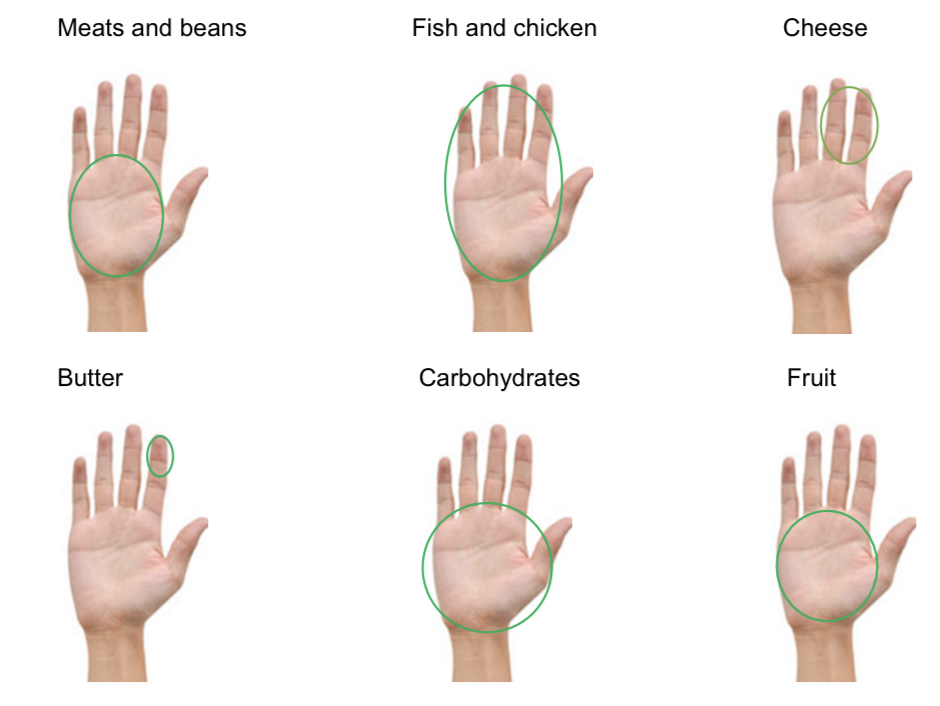
Published: 18 February 2020
How much should I eat?
Blog written by Wendy Ballard from Compass Dietetics Consultancy - Club Sponsor at The Shrewsbury Club.
Portion distortion. Does size matter?
Well seemingly it does especially when it comes to portion sizes of what we eat. Everyone knows that to lose weight there has to be an energy deficit. Whether this is created through exercise (energy out) or by food (energy in) it needs to happen.
I have been a dietitian for a fair few years now and I never fail to surprise people when I point out just what a portion actually is. There are many times that clients have sat in front of me and said ‘I eat really healthy but I cannot lose weight’ The truth here is no matter how healthy you are eating if you are eating too much (energy in) than what you expend in energy (energy out) you will gain weight. Many people seem to make the mistake that if it is good for you it won’t contain as many calories……WRONG.
Getting your portion sizes right will help you to adjust to eating less without making too many changes to your diet (if you eat relatively healthy that is). For some people it can kick start weight loss, motivating them into making other changes to their lifestyle.
So, what is a portion:
Rather than using measurements I like to use my hands as they are always with you. This applies to all ages so whether you are 5 or 50 it is still the same principle. See the image below with some examples.
A few more tips:
- Jacket potatoes should be no bigger than a computer mouse or it should fit comfortably inside the palm of your hand.
- A slice of bread should be a similar size to a compact disc. Go for thinner varieties of bread rather than thick slices.
- Grate your cheese as an alternative to slices you will find that the portion will go further.
- Your meat portions should be no thicker than the palm of your hand.
- You can save yourself money and calories when buying chicken by buying 1 large chicken breast per person and slicing this lengthways in half. You will find the size stays the same but the thickness will be a much better portion for you, instantly you have halved the calories.
- Go for lean mince meat and try to have less of this you can bulk up your dish with other vegetables and legumes again much cheaper and less calories.
- You can have two handfuls of vegetables. Vegetables have less sugar and more vitamins than fruit and are therefore a better option for bulking up your plate. They are the one thing on your plate that will have the least calories (provided you do not have them covered in high fat sauces) so use them to fill up your plate and your tummy.
We recommend to make up your 5 a day to have 2 portions of fruit and 3 portions of vegetables.
Mindfulness
Be mindful on how you are eating and when you are eating. Most of us are guilty of sitting at work on our computers and go for that mid morning coffee with a biscuit. But how many of you actually remember eating and savouring that biscuit. The answer is, is that you don’t so you are more likely to go and get another because the first one disappeared so quick you did not even notice that you had actually eaten it.
Being more mindful when you are eating and how you are eating make you more aware of why you are eating and how much you are consuming. For example, if you do fancy that mid morning biscuit ask yourself where is this feeling coming from. If you feel hunger from your tummy then that is hunger. If you are thinking more about what you fancy then that is not true hunger that is a craving so you don’t have to actually have to eat anything at this time.
Time is the biggest cause of us rushing our meals. We are all in a rush and this is reflected in our mealtimes and eating patterns. Savour each mouthful, taste your food, think about the different textures. By doing this you will find that your meal will last longer, it also allows time for your stomach to send messages to brain to tell it you are full meaning you are less likely to eat as much. If you feel full and there is still food left on your plate stop eating. Quite simple, you don’t have to finish your plate and feel guilty for wasting the meal. Making yourself overweight is not going to save the planet but cooking less next time may contribute towards it.
I hope you have found this blog useful. You can find out more about portion sizes from https://www.bhf.org.uk/informationsupport/support/healthy-living/healthy-eating/healthy-eating-toolkit/food-portions and the British Dietetic Association food fact leaflets on their website.

Published: 18 February 2020